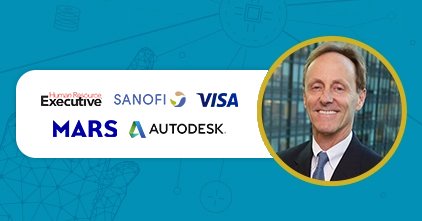From skills to language policies, today’s labor market demands so much from the youth. Still, the future can hold infinite possibilities. Learn how students can thrive in employment and how language learning in vocational courses can give them a competitive edge.

The future is bright, hopeful, and promising; it holds infinite possibilities. Work hard, do your best, and you can reach your dreams. This is what we tell the youth. And yet the reality of achieving one’s dreams becomes dimmer when faced with the changing demands of the labor market.
The current employment landscape is more skills-focused and open to the younger workforce. It should be easier for students, especially those taking technical and vocational courses–having the education that centers on applicable skills and training–to jumpstart their careers.
However, the growth of AI, the spotlight on diversity, the rise of remote work, and even the enforcement of language education are making the job market more competitive than ever.
With the labor market situation, how can students increase the likelihood of achieving their job aspirations? How can the future truly become bright again for them?
In this article, we take a look at education, particularly technical vocational education training (TVET). Moreover, we connect the current state of TVET to today’s jobs. Lastly, we provide a perspective on the valuable skills and solutions that can help students in the future.
Beyond High School Education
Graduating high school and deciding where to go next is a critical step that shapes one’s life. Pursuing further education and building competencies might be an obvious move. After all, a high school diploma can lead to entry-level positions, but continuing education can allow graduates to acquire practical skills and enhance job prospects. Unfortunately, it’s not that simple.
There are different factors surrounding the decision to enroll in post-secondary education. High school grades, job aspirations, financial capacity, and family arrangements are just a few. Depending on these factors, students may opt to take a four to five-year university degree or a shorter technical course. Going for a straight-up dive into job hunting can also be a choice.
In a survey of 6,605 adults, close to 4 out of 5 respondents see the significance of completing further education after high school. For them, it helps individuals have a better life. They can have greater access to employment, salary potential, and career opportunities.
While post-secondary education is still perceived to be valuable, 34% of students believe that education is not preparing them for success in the job market. The current education design focuses on memorization and academic knowledge. Although these present valuable learning, students are asking for a more relevant and up-to-date curriculum. They want an education that will improve their employability and economic independence upon graduation.
This only shows how much the jobs of tomorrow are rapidly and drastically changing. To succeed, students need a new set of competencies–and building them begins in school. This call for job-relevant education poses a challenge not just for students but also for schools and teachers.

Significance and State of Technical Vocational Education and Training
For most students, vocational courses provide a more affordable education anchored on practical and applicable skills. With shorter training than a university education, they can have faster access to their chosen career path.
In a published UNESCO report that surveyed 3,710 youth across 101 countries, technical and vocational education and training (TVET) students gave the following insights:
- Potential job opportunities upon completion of training are the main reasons for TVET enrollment.
- Communication and interpersonal skills are the most important skills for students. Technical skills rank second, and critical thinking and problem-solving skills rank third.
- For aspirations, respondents primarily see TVET as a possible stepping stone to achieving a good work-life balance. They also perceive it as a means to reach a high level of education and to find highly satisfying occupations.
- Financial constraints are the biggest challenge in TVET. But so is difficulty understanding the training materials and concepts.
To dig deeper into this report, a roundtable discussion with TVET students and graduates was conducted. The conversation brought more emphasis on their needs such as:
- More venues for practical skills application,
- Accessible, inclusive, and personalized learning environments, and
- Job-ready language and communication skills
In many ways, the results of the survey and discussion expectations of students mirror the demands of the labor market. Aside from technical skills, employers look for soft skills such as language and communication skills and a growth mindset.
Organizations worldwide have been building on diverse hiring and identifying global talent. They have opened their doors to new talents worldwide. An integral part of this recruitment strategy is language and communication skills.
Employers are searching for the ability to not only speak and write in the corporate language. Instead, they prefer employees who can communicate, contribute, and collaborate in achieving business goals. And this is precisely why students are calling for job-relevant education.
At the same time, students are realizing early on what the current employees look for in jobs: work-life balance, learning, and workplace satisfaction.
A holistic approach to TVET is becoming more urgent and more necessary.

As the designated center for TVET, UNESCO-UNEVOC works towards ensuring access to quality skills training and development for all.
In the recent World Youth Skills Day 2023, Friedrich Huebler, Head of UNESCO-UNEVOC, recognizes the sentiments of today’s TVET students regarding education.
“Skills can unlock opportunities, break barriers, and transform lives,” Huebler says. “Young people with the right combination of skills and knowledge can drive economic growth, reduce poverty, promote social cohesion, and contribute to the achievement of sustainable development goals… [But] access to quality education and training remains a significant barrier for many.”
Heike Kuhn, Head of Division for Education of the German Federal Ministry for Economic Cooperation and Development (BMZ) also acknowledges the need for an improved TVET curriculum that is aligned with relevant skills fit for the workplace.
“The need for transformation in education and training is becoming more and more visible,” Kuhn says. “Therefore, we must adapt educational systems worldwide to help them face the challenges of our time and make them fit for the present age and our future. And this is why TVET is highly relevant. TVET has to respond to challenges and at the same time, become a driver of transformation.”
With the education board echoing the opinion of the youth, how can TVET education become the transformative force that supports students in their jobs and their future? The answer is by including future-ready language education.
The Value of Language Learning in Vocational Courses
Many vocational fields feature specialized terminology and jargon. But the reality of working is communicating with a lot of people: peers, supervisors, managers, and customers. Satisfactory language skills are essential for comprehending technical speak and simplifying them into understandable terms.
Language skills are also critical in ensuring safety in various vocational fields where miscommunication could result in errors or accidents. For example, workers in engineering, electricity, and construction.
Additionally, language and communication skills in these fields are valuable for accurate and professional documentation, a common requirement in various vocations. This is especially applicable to medical assistants or nurses.
In an ever-evolving job market and industries, adaptability is needed. Having strong language skills can help individuals up-to-date with industry advancements. This can also lead to career advancement opportunities.
Aside from workplace communication, language requirements in education have become imperative for some countries. This is due to government policies. With a focus on bilingualism and multilingualism, the government hopes to expand the employment network of graduates.
All these things considered, language learning in vocational courses is necessary to facilitate the growth of students in their chosen job and career path.

Delivering Job-Ready Language Learning for Vocational Courses
With the demands of the labor market, having more to offer outside technical know-how can be advantageous for students.
The new generation of learners calls for a combination of soft skills alongside technical skills training. They hope to have a job-ready education. To meet the demands of the labor market, a well-rounded vocational education aligned with employers’ requirements is needed. And as TVET students pointed out, this includes communication and interpersonal skills.
As the top language solutions provider of companies worldwide, goFLUENT knows the impact of language learning on different jobs and industries. We believe that high-quality education changes the lives and livelihoods of everyone. That is why we want to support educational institutions in addressing the key challenges students in vocational courses face. With high-caliber, work-ready, and limitless language learning, we help schools prepare students for employability and career success.
goFLUENT provides a wide array of solutions including personalizing the learning experience and delivering industry-specific and job-relevant language education. By partnering with us, schools can lead the digital transformation in their education system.
Together, we can attract students for enrollment, create an optimal learning environment, and accelerate their language learning for the future of work.
The future is bright. It holds infinite possibilities. And it can begin with the education of students today.



